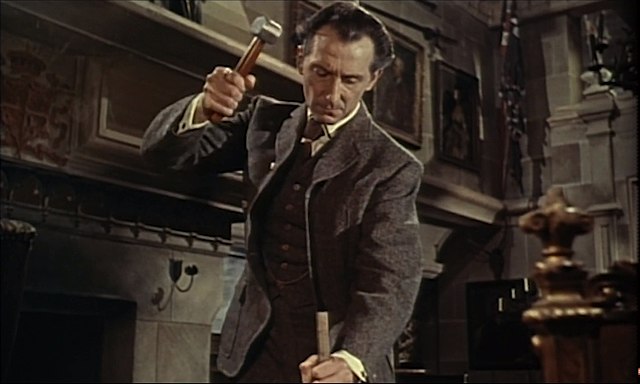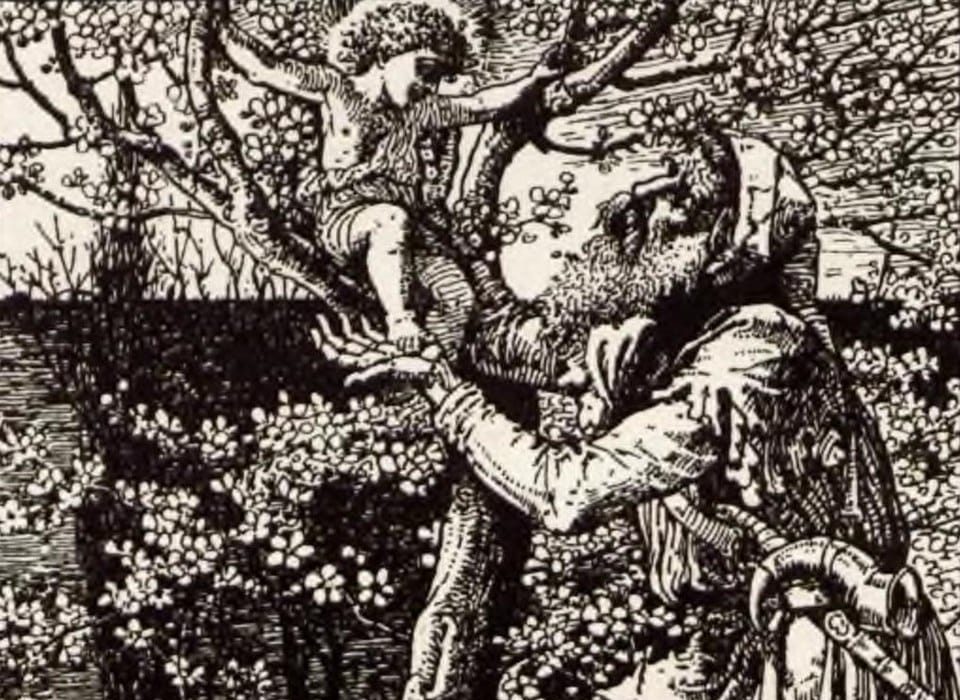Author Joe Hill’s 20th Century Ghosts features the short story “Abraham’s Boys,” and while it ostensibly preys on the vampiric tropes of its titular character, it is a story that took me by surprise as a startling look into the reality of living with the heroes in our lives.
Published in 2005, the short-story collection contains a cache of excellent fiction and tales that veer from the horrifying to the abstract to the forlorn and depressing. Hill’s “Abraham’s Boys” appears in this book, and it’s a wonderfully dark and horrid story–standing as a testament to the book’s tone and oftentimes unflinching nature. It is a story of family, lineage, and violence, and in a collection of “classic” short stories, this story looms as tall and imposing as the character of Van Helsing himself.
Summary
The story tells of the legendary, albeit aging, vampire slayer Abraham Van Helsing as he raises his sons, both Max and Rudy. Rudy is reluctant to engage in the family business, while Max is fully dedicated to his father’s important–and gruesome–work (vampire slaying).
During the story, Max often has to suppress a “shudder of revulsion” because saying “his father was superstitious was an understatement of grotesquely funny proportions” (Hill). In fact, his superstitions are laced with cruel violence and abuse, of which only a sociopath could dream up from a place of trying to help.
Meanwhile, Van Helsing’s unsavory behavior stems from obsession, dependency, and vice. In the story, his steadfast, abusive personality and violence in pursuit of vampire hunting savagely ruins his sons both mentally and physically. After Rudy runs late getting home one evening from the neighbor’s (Mrs. Kutchner), Van Helsing does not let his son’s mistake slide lightly. His reasoning: it’s unsafe after dark and the only safe place is home.
“Yes, Mrs. Kutchner’s is very safe. A veritable fortress. Protected by a doddering farmer who can barely bend over, his rheumatism pains him so, and an illiterate peasant whose bowels are being eaten by cancer.”
Van Helsing’s vindictiveness leads to disciplining his son with a small riding whip.
As Max tells us: “The quirt came down with a meaty smack, and Rudy, who would be ten in two weeks, screamed. Max ground his teeth, his hands still digging in his hair; pressed his wrists against his ears, trying vainly to block out the sounds of shrieking, and of the quirt striking at flesh, fat and bone.”
“Help your brother in,” Van Helsing tells Max after the beating. “You see what you make me do.”
Through this abuse and violence, the reader gets a clear picture of the Van Helsing home. You must be strong and mindful to slay vampires, their father hints through his aggressions. In this way, Van Helsing maintains the authority, the credibility of the good doctor and vampire hunter, and yet the mania of his words and actions tell the reader a different story–one his sons must live with.
Without spoiling the ending, the story builds expertly on Van Helsing’s life and experiences, and the ending drives home the theme of violent legacies and unending trauma.
Conclusion
The short story “Abraham’s Boys” by Joe Hill is a haunting tale of lineage and growing up with monsters. It hammers home the idea that the legendary heroes of our lives–perhaps our own parents whom we look up to and cherish–are, in fact, monsters themselves.
Can this really be true?
In Hill’s story, we have the pinnacle of that evil, which manifests in the physical and mental abuses perpetrated by someone who believes evil creatures infest the real world. His children’s naivete soon turns cynical as they come to terms with their father’s maniacal extracurricular exploits–and this pushes them to their own sort of violence.
It’s a sinister story that leaves the reader with a deep sadness for lost youth. It also defines the expression never meet your heroes. While they may say that they are doing good for the world, their true selves may speak different.





Leave a comment